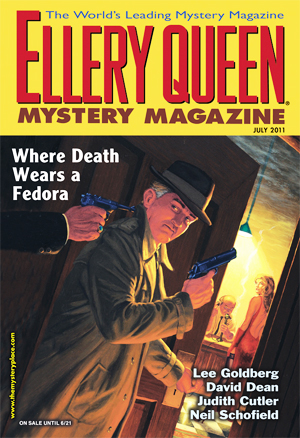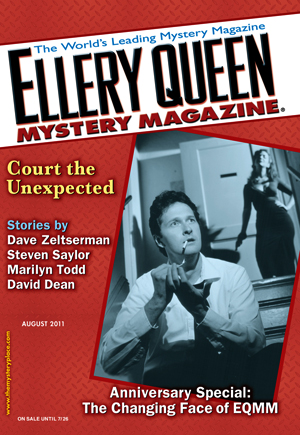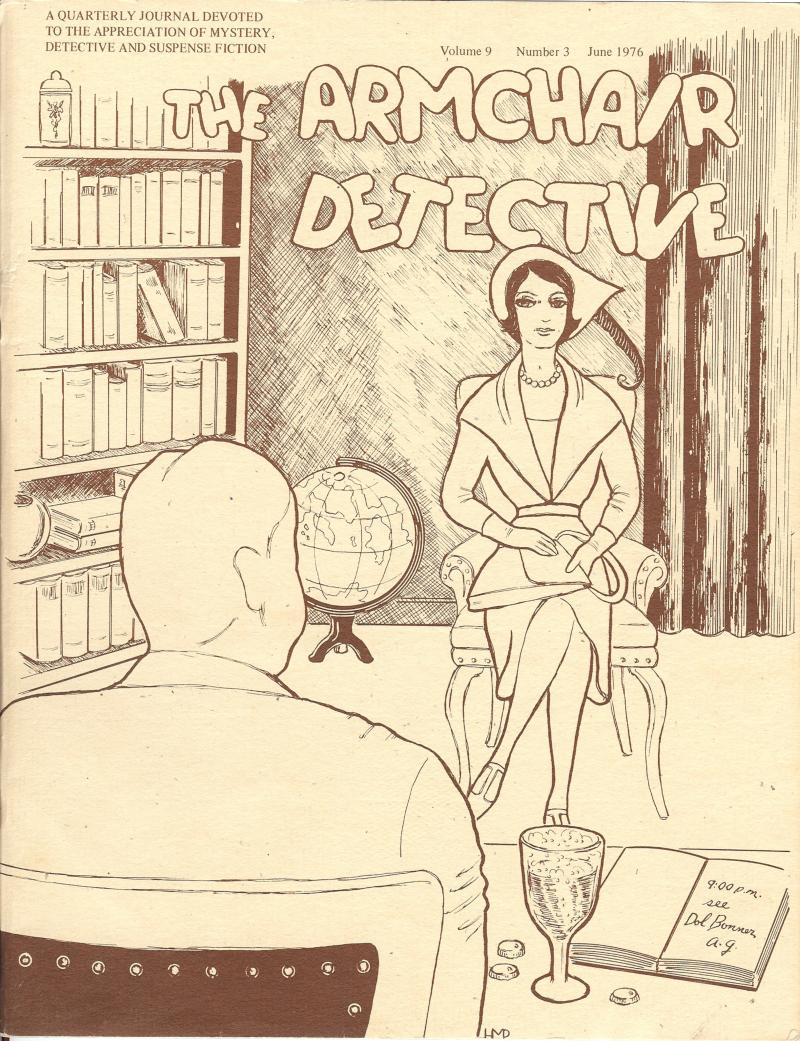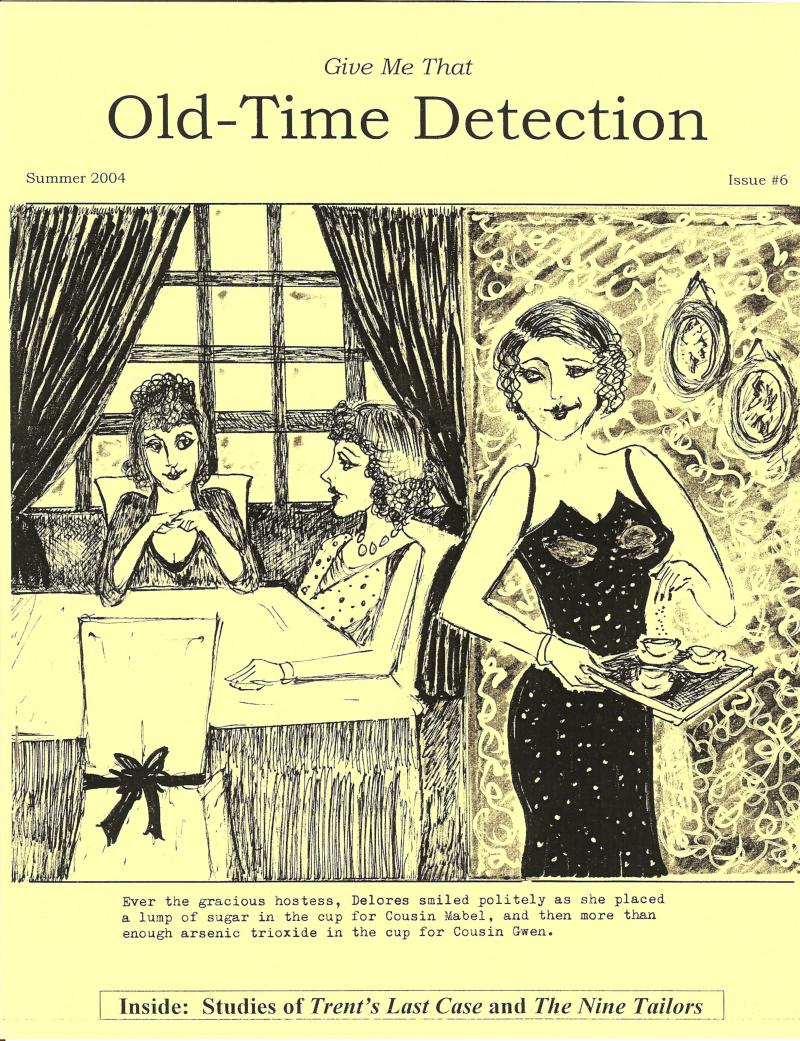Monday, June 27: Spirit of the Law
FAN FAVORITES
by Janice Law
One of the nice things about book chats—and blogs—is the chance to promote favorite authors. Some, perennial inhabitants of the best seller lists, need no introduction. But there are others, equally worthy in the fan’s estimation, who never reach the popularity their quality would suggest.
Two of those this week: the late Magdalen Nabb and the very much alive Fred Vargas (Frédérique Audoin-Rouzeau), both excellent women writers who have escaped the sort of celebrity that bloats up neat, taut books into door stops and encourages over production and formulaic writing. Nabb, who died following a stroke in 2007, trained as a potter. A move to Florence and friendship with a local carabinieri gave her insights into the Italian police force and led to the creation of Marshal Guarnaccia, whose adventures eventually spanned fourteen books.
Patient and diffident, the Marshal was perhaps too modest and unflamboyant a character to achieve bestseller status. A devoted family man, a kind boss, and a compassionate guardian of his Florentine neighborhood, he lacks fancy vices and glamorous sorrows. Instead of an addiction, he has hay fever, and his struggles are with his diet, not alcohol. The nearest he comes to conventional investigator behavior are his exceedingly polite and low key conflicts with his superiors.
The Marshal is so normal in his concerns and affections that, in the context of mystery novels, he is almost eccentric, but this gives the stories unusual realism and resonance. The Marshal is serious without being gloomy, and compassionate without ceasing to be clear eyed. His methods, like his personality, are modest. Yes, he relies on forensics and lots of legwork, but at bottom, Marshal Guarnaccia solves his cases by listening, not to the words necessarily—he is notoriously dreamy and abstracted and slow on the uptake—but to the emotions behind them. On these he is rarely wrong, having the knack to recognize his own emotions and struggles in those of others. Polite and insecure about his intellectual abilities, the Marshal is the diametric opposite of the familiar smarty pants detective and none the worse for that.

Fred Vargas (Frédérique Audoin-Rouzeau)
His counterpoint in the Vargas novels, Chief Inspector Jean-Baptiste Adamsberg of the Parisian Brigade Criminelle, is also an unexpected type: small and disheveled and attractive rather than handsome; seemingly idle; good with infants and animals; attractive to women but unreliable with the woman he really loves. A shepherd’s boy from the Pyrenees, Adamsberg is even dreamier than the Marshal. His idea of working on a case is to wander along the Seine and see what floats into his mind.
Fortunately, he comes with Adrien Danglard, the overly hard-drinking but ultra-responsible single father of five, who is as rational and detail—and paper work—oriented as his boss is improvisational. Imagine this pair as a dreamy Dr. Watson as the genius detective and Sherlock Holmes as his detail man and you won’t be far wrong.
Further assistance comes from other members of his team like Violette Retancourt, an immense woman, the brigade’s “half-track” as she’s indelicately referred to in one novel, whose talents range from a rapport with the Snowball, their only apparently useless mascot feline, to night vision and an astonishing turn of foot. Retancourt is only one of many characters who are unexpected, eccentric, and stereotype busting.
Adamsberg can also count on the services of three peculiar historians, one interested in WWI, one in the middle ages, and one in pre-history. These “Three Evangelists” prove useful to the Chief Inspector in a history-soaked city like Paris—and in novels by a moonlighting historian and archeologist. And have I mentioned his IT people? They’re pair of elderly ladies who’ve mastered the computer and international financial manipulation, pretty much in that order.
Befitting this gallery of oddballs, Vargas’s plots are peculiar to say the least. Who has shot a fine stag in Brittany and removed only its heart? Who is going about Paris painting medieval plague signs on people’s doors? Who is making neat chalk circles around corpses in the 5th arrondissement? Can there really be a giant wolf—or is it a werewolf—stalking the Pyrenees? And can a long dead killer possibly be haunting Adamsberg in Canada of all places?
Well may you ask. These and many other puzzles are unfolded in the six novels devoted to Chief Inspector Adamsberg, all characterized by a great fertility of invention, vigor of characterizations and graceful prose. Vargas manages to be serious without being humorless, and Adamsberg’s cases are unusual without being totally implausible.
If you are tired of fat, heavy novels with all too familiar types and plots, either Nabb or Vargas will provide an alternative. Nabb for the simple humanity of her characters; Vargas for the luxuriant eccentricity of her imagination. Either way, you are in for a treat.





























